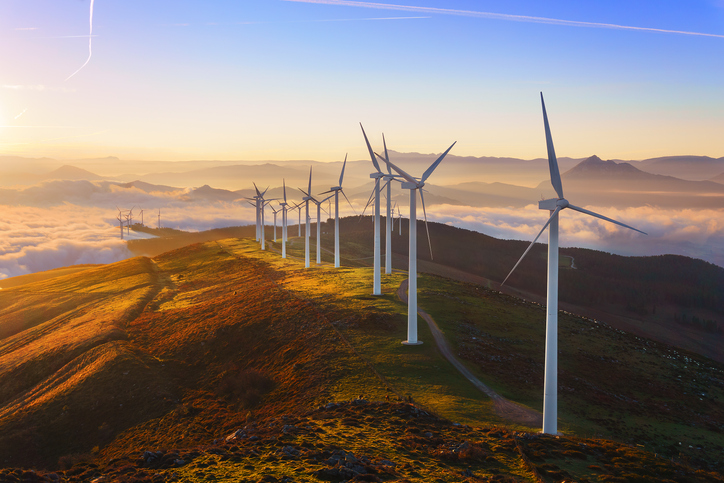The Geopolitical Implications of Energy Transition: Navigating Challenges and Opportunities

Authored by Liberty
The energy transition is a global shift towards sustainable and renewable energy sources, aiming to reduce reliance on traditional fossil fuels and mitigate environmental impact. As the risks associated with climate change worsen, the need for this transition has become not only desirable, but unavoidable. The imperative to transition to cleaner energy, already pressing, was further compounded by geopolitical events: the first truly global energy crisis sparked by the Russo-Ukrainian War, as the IEA has argued.
Historically, the geopolitical landscape and global power dynamics were strongly linked to control over natural resources, like oil and gas. It is likely that this balance will shift in favour of dominance where materials like lithium, nickel, cobalt, manganese and graphite copper, zinc, silver, and rare earth elements are sourced. These elements are essential for renewable technologies, and mineral demand for these is set to grow precipitously in coming years.
As the International Energy Agency’s World Energy Outlook special report on the Role of Critical Minerals in Clean Energy Transitions makes clear: “a typical electric car requires six times the mineral inputs of a conventional car, and an onshore wind plant requires nine times more mineral resources than a gas-fired power plant. Since 2010, the average amount of minerals needed for a new unit of power generation capacity has increased by 50% as the share of renewables has risen.”
Given this enormous shift, the transition will necessitate a profound revaluation of global power dynamics and supply chain intricacies, impacting all industries and companies along the production line. As we are already beginning to witness, nations vying for access to materials crucial in the renewable energy transition are experiencing new friction points and geopolitical tensions are emerging. Geopolitical security is energy security.
Currently, China is responsible for the production of 80% of rare earth elements and therefore plays a big part in the global energy transition.
Where there is significant risk to a project vital to societal prosperity, in this case, the energy transition, the insurance industry must be ready to step in as the societal backstop. As insurers, we have been preparing our response and developing products to answer the need to mitigate geopolitical risk and enable the global renewable energy transition.
Navigating the new risk landscape as insurers
The insurance industry has always played a pivotal role in supporting companies through provision of political risk and violence coverages, underlining the necessity of responsible practices and community engagement for a successful and safe energy transition. In line with global changes, our focus, as underwriters, shifts to ensuring that these companies can navigate the challenges effectively.
Renewable energy operations risks, once active, such as an offshore wind farm or a solar photovoltaic installation are exposed to a very particular type of political risk: we assess that, by and large, these fall under the low-risk category for terrorism, Strikes, Riots, Civil Commotion (SRCC) and political violence. War perils are a different story.
To protect our clients against the threats posed by political risk and political violence, we must assist them in securing supply chains, investments, and operations. The goal is to transfer some of the risk associated with these endeavours from the client’s shoulders to the insurance industry’s balance sheet.
The underwriting process involves assessing the geopolitical situation, understanding the client’s behaviour and business practices, and evaluating the internal knowledge and security measures of the client. Location and political stability play a crucial role in determining the insurability of a project.
One of our first assessments involves a client’s current community management plans, a key factor in mitigating risks associated with energy transition projects. We emphasise that responsible practices, including employment of local populations, avoiding environmental harm, and contributing to local infrastructure, are essential for long-term success and safety on the ground.
The reality is, however, often far less straightforward. There is a darker side to energy transition. For example, the extraction of rare earth metals, at the very start of the supply chain, often occurs in areas that involve unfavourable working conditions and civil unrest.
The last five years have been marked by numerous events of civil unrest that have occurred across the world. These are now becoming more frequent and as such, becoming more commonly written into insurance and protection policies. SRCC coverage is now often included in property insurance policies, business interruption insurance, or political violence insurance.
The SRCC coverage becomes relevant in situations where political or social disturbances lead to property damage, business interruptions, or other financial losses for individuals or businesses. The goal of SRCC insurance is to mitigate the financial impact of such events by providing compensation for covered losses.
Facilitating protection through underwriting and risk management
Across all stages of the energy transition supply chain, from extraction to transportation and manufacturing, different companies exhibit varying levels of awareness and readiness to engage with SRCC insurance. While some sectors readily embrace these products, others, particularly manufacturing companies, may not immediately see the necessity. As the energy landscape undergoes transformative changes, we have seen a significant uptick in desire of companies to insure themselves against these risks.
The transformative journey towards energy transition is not only reshaping the energy landscape, but also redrawing the geopolitical map. The insurance industry, through thoughtful underwriting and risk management, stands as a crucial partner in facilitating a smooth transition, ensuring the safety of investments, supply chains, and the people involved in this monumental global shift





